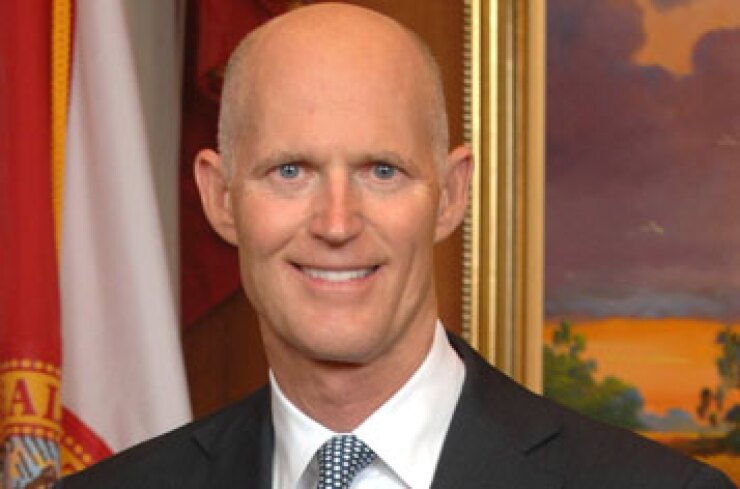
BRADENTON, Fla. - Florida's economists boosted the state's general revenue estimates for the current and next year, an indication that the state's economy is well on the mend.
"Since the last forecast was adopted in August, total collections have run above estimates, ending November with a projected $158.6 million over the estimate," the economists said following their Dec. 15 conference. "This overage, equivalent to 1.55%, was stronger and more consistent than normal variations in collections. "
As a result, the economics revised the fiscal 2015 forecast by increasing total general revenue collections by $1.29 billion or 4.9%. They also revised the forecast for fiscal 2016 by $1.1 billion or 4% over their previous estimate.
The big contributors to the increase were stronger than anticipated sales, real estate, and intangibles taxes, they said.
In fiscal 2014, sales tax collections - the biggest supporter of the state budget because Florida does not have a personal income tax - exceeded the previous peak in those collections experienced in 2007.
Because of those results, forecasters increased the anticipated sales tax revenue for fiscal 2015 by another $207.9 million, and by an additional $176.3 million for fiscal 2016.
The higher sales tax collections "reflect the experience since the last forecast and future strengths in taxable sales related to tourism, business purchases, and household goods," economists said. "One contributing factor to the new forecast is significantly lower gas prices that have freed up dollars for other purchases."
They project total general revenue funds available for fiscal 2015 will be $30.34 billion and for fiscal 2016 will be $30.63 billion.
Gov. Rick Scott, who will soon present his 2016 budget recommendation, said the higher anticipated revenue reflects positive steps the state has taken to expand its economy.
Scott also said he would work with the Legislature to cut $1 billion in taxes over the next two years and increase K-12 pupil funding "to the highest level in our state's history this coming year."
"There is no shortage of ideas for how this slight increase in available general revenue could be spent," state Senate President Andy Gardiner, R-Orlando, said in a statement. "While today's news gives my Senate colleagues and I reason to approach the 2015-16 fiscal year with cautious optimism, our challenge is to remain vigilant and responsibly plan for Florida's future."
Gardiner did not comment on the governor's tax cut plan. He said appropriations committees would begin to evaluate budget requests, and past performance of state-funded programs, in early January.
Florida's annual legislative session begins March 3 and runs through May 1.





